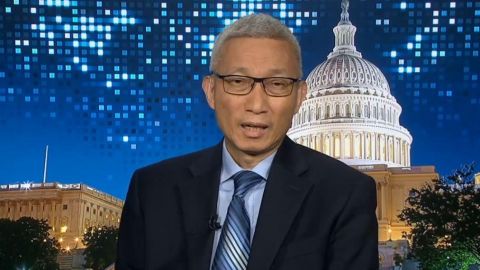Read Transcript EXPAND
CHRISTIANE AMANPOUR: I mean, there is no doubt that China has been treated very, very well by the West for many, many decades now. Do you think that is what they’re angling for? Wait and see who wins the next election?
MINXIN PEI, PROFESSOR OF GOVERNMENT, CLAREMONT MCKENNA COLLEGE: Well, I would say it’s a little more sophisticated than how Trump put it. A Democrat can be better or can be worse that than Trump. But from the Chinese point of view, nobody can worse than Trump in terms of trying to negotiate a deal with. Because Trump in throughout this process has shown a propensity to change his terms and to — also, in dealing with China, you have to be very conscious about not humiliating them in public, and Trump has been doing this all the time. And which really has upset them. But I think fundamentally, the Chinese have concluded that the deal with the U.S., at this point, has lost a lot of its value. The heart of a trade deal is about supply chains. Because of the trade wars, the expectations that these two countries can have a stable economic relationship have been bashed, shattered, really. And regardless of a deal or not, the supply chain will move out of China and the Chinese believe that they may end up much worse off if they do not stick to their own terms.
AMANPOUR: And yet, on the other side, look, the IMF has just basically downgraded Chinese growth and upgraded U.S. growth. Isn’t there a case to be made that actually the United States would like to drag on these talks because actually it is hurting the Chinese economy more than it’s hurting the U.S. economy. Let’s not talk about American consumers who are paying for this tax. We know that the farmers are getting a $16 billion payout, because they’re hurting and China is already going elsewhere to get soybeans and other things. But in general, isn’t President Trump’s strategy here proving to be, at least in zero-sum term games, correct?
PEI: Yes. I don’t think President Trump himself has a real strategy. But his geopolitical advisers do have a very sophisticated strategy. Their strategy is to sue the tariff war, get the supply chain out of China and fundamentally weaken China’s economic growth. This strategy will probably work in the long-term. In the short-term, growth can be driven by a variety of factors. In the case of the U.S., probably, I would say, deficit spending, tax cut plays a much more important role than a trade war with China in delivering some kind of positive growth numbers.
About This Episode EXPAND
Christiane Amanpour speaks with Andy Slavitt and Sarah Kliff about the role of healthcare in the 2020 race. Minxin Pei joins the program to discuss negotiations between the U.S. and China. Hari Sreenivasan sits down with Kwame Onwuachi, author of “Notes from a Young Black Chef,” to discuss how he beat all odds to become part of a new wave of cooking trailblazers.
LEARN MORE


